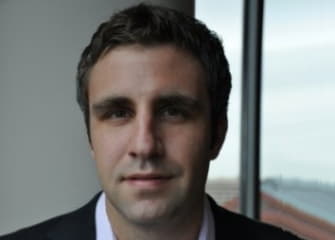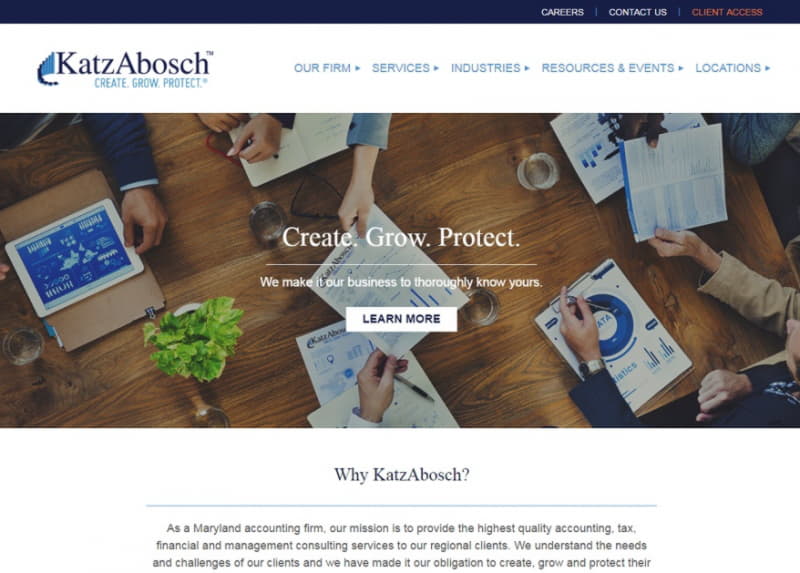
Guy Filippelli
Click here for Part I & Part II
Assessing the human side of enterprises to uncover insider risk
Guy Filippelli is the CEO of RedOwl Analytics, a insider risk management firm located in Baltimore, with offices in San Francisco, New York, and London. RedOwl differs from other security companies due to its emphasis on the human factor: human behaviors, attitudes, personas, and miscommunications that lead to breaches of sensitive data. The company’s platform combines industry-leading risk mitigation practices with regulatory surveillance and in-depth analytics to uncover patterns and stories about threats to the enterprise from within. Investors in RedOwl include Blackstone Group, Allegis Capital, Conversion Capital, Kevin Plank, TCP Venture Capital, and the Maryland Venture Fund.
EDWIN WARFIELD: Let’s talk about how the company operates. How do you manage growth in the four offices in Baltimore, San Francisco, New York, and London?
GUY FILIPPELLI: The core of our team is Baltimore and New York. We have a small team in San Francisco, but an important set of people out there: my COO, my head of product, and my head of marketing are based out in San Francisco. That was very much an opportunistic play based on the people that we had there. San Francisco was an ability to get Brian White on the team, to establish relationships with the West Coast, both on the customer side and on the venture capital side, and to start to build around him. That’s turned out to be a wonderful move. We’ve kept it small. We’ve attempted to kind of build out some engineering presence out there. But in my own viewpoint, there’s still something about being able to physically get people together frequently, and we can do it with the two-hour Amtrak a lot easier than a five-hour cross-country flight. Even in the age of video conferences, this is very much a team sport right now.
I just happen to have an incredibly competent, mature product marketing, business operations-type team out there, and those are also skill sets that are a little hard to find out here sometimes. We’ve balanced what we do in San Francisco versus what we do here. We’re certainly keen to grow here and grow in New York as primary growth centers, if you will.
London for us is a small team of people there to just handle London accounts and grow the business a bit throughout Europe. It's a handful of people.
Our growth will be focused on Baltimore and New York as we move forward, but it gives us the opportunity to opportunistically grow in those places if necessary.
When you look at the different funding cycles of a company, your seed funding round is really there to enable you to prove out your idea that this is even feasible.
Q. RedOwl has been through several investment rounds. What’s your funding strategy?
A. Series A and Series B—and these lines get blurred sometimes—but your Series A and Series B is there to prove that the product works, that you’ve got initial customer attraction and that you’re marching towards product market fit. Really, by the time you finish up that Series B funding, you ought to be in a position where you have a proven product, you have a consistent set of happy customers using that product, and you’ve got sales collateral and marketing collateral that’s ready to scale.
It’s really about bringing in Series C money that’s going to either be applied towards a large direct sales force or a serious effort in investment towards channel partners, because we’re going to go from x to x-times-10 customers. We feel like we actually know, with some certainty, how much money translates to how much revenue. We’ve got the unit economics nailed. We’ve got the market nailed. We expect to enter that confidence zone of being able to really predict the business sometime later this year, and that will be the trigger point for us to say, “Okay, let’s go back to the market and let’s bring in some additional capital.”
Q. With all this opportunity in New York and Silicon Valley, what drew you to Baltimore?
A. We’ve been in this city here for about five years, and in that time I’ve really fallen in love with just the entirety of the ecosystem here. I really, truly have never been in a place where everybody just wants everybody else to win. Part of that is probably because most people don’t compete with each other on a daily basis. It’s just the way the social circles work. You go out to dinner with a bunch of couples and everybody does something different, whereas if you’re in San Francisco you’re all software engineers; or if you’re in New York City you’re all bankers; and you’re in some way all kind of competing against everybody else, right? Here, you go to dinner and there are a couple of bankers, and there are some real estate people, and there are somebody in manufacturing, and somebody who’s in education or works for Hopkins or this and that. The diversity makes it less competitive in some ways.
The second thing is that everybody realizes that the better Baltimore is as a city, the better everybody does. They realize the city’s not financially exceeding its expectations. There’s lots of work to be done. Then, you have that little bit of competitive vibe, like, “We’re Baltimore—we’re not DC.” So, you have all these different factors that go into making the city a really interesting place. That, coupled with the fact that there is a lot of good that needs to be done here, really came to light for me after the chaos that we had in the city last year.
Q. How did you get involved with the Greater Baltimore Committee?
A. I’ll never forget this: I was in New York City, running into a meeting, and I get a call from Don Frye over at the GBC, and he says, “We’ve decided this year that we’d like to get a couple of smaller companies in and get their voices on the board. I thought, I don’t really have time for this, and I basically said no.
A week later, I was watching the television—and I’m driving into the city the next day—and I was seeing this happen, and then I see the National Guard, and I realized: Wow, this city is struggling. There’s a need. I called Don and said, “Hey, if you’ll still have me, I’m very interested.” I’m extremely fortunate that a. I was asked in the first place but b. he took me after I called him back.
I think there are some tremendous leaders in the city, too. I’ve been just blown away by people like Ron Daniels at Hopkins, Mike Hankin of Brown Advisory, Brian Rogers at T. Rowe, and obviously Kevin Plank and the crew over there. There are just some great people who want to do great things here.
So, part of it is a sense of “hey, this is our city—let’s do great”; part of it is very much being inspired by the people around me and saying, “Look, if them—why not us?” And part of it is just the raw opportunity. I mean, you look at the geography, you look at the people—you look at the core of who the people are—you look at the grittiness, you look at the culture, and you look at, frankly, the great assets within the ecosystem: Hopkins, NSA—the entire financial ecosystem here. There are great pieces here. It’s a wonderful city, and we ought to figure out how we can play a role in that, so that’s what we try do.
Connect with Guy on LinkedIn
Sponsored by:
Founded in 1969, KatzAbosch is one of the largest CPA and business consulting services in the Mid-Atlantic region. Our mission is to provide the highest quality accounting, tax, financial and management consulting services to our clients. We understand the needs and challenges of our clients and we have made it our obligation to create, grow and protect asset value. The experts at KatzAbosch offer a full service solution while maintaining a tradition of ethics and incorporating the latest technology and unique business practices. Excellence in an industry often begins with how those closest to the company—its clients and employees—feel about it. For these individuals, KatzAbosch is a place where people and businesses excel and prosper. Our advisors can meet all of your service needs including; Audit & Accounting, Business Valuation & Litigation Support, Consulting, Estate Planning & Administration, Financial Institution Services, Forensic Accounting & Fraud Examinations, State and Local Tax (SALT), Taxes & Planning.


Edwin Warfield, CEO of citybizlist, conducts the CEO Interviews.
If you're interested in reaching CEOs, please contact edwin.warfield@citybuzz.co
Connect on LinkedIn




































